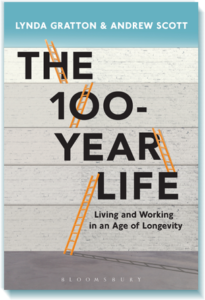 As I argue in my latest online column for MoneySense, published this morning, I believe that the next big wave to be surfed by the baby boom generation will NOT be retirement, but Semi-Retirement. Click on highlighted link to access: Why semi-retirement is the future.
As I argue in my latest online column for MoneySense, published this morning, I believe that the next big wave to be surfed by the baby boom generation will NOT be retirement, but Semi-Retirement. Click on highlighted link to access: Why semi-retirement is the future.
See also my October 18th interview on this topic with CBC On the Money’s Peter Armstrong.
I’ve also argued that the boomers are largely going to be responsible for retiring the very word Retirement. This is of course the central theme of the book I co-authored with former corporate banker Mike Drak: Victory Lap Retirement, which MoneySense excerpted in its Summer retirement issue. See Why you wake up each day. (See also links to two recent reviews and a BNN clip listed at the end of yesterday’s blog: Millennials say Financial Independence defines Adulthood.)
Now a cynic might argue that in making the Victory Lap Argument, necessity is the mother of invention. A lot of us haven’t saved enough to retire in the style to which we’d like to be accustomed. Add to that the decline of corporate Defined Benefit pension plans and minuscule interest rates and there’s a lot to be said (at least financially speaking) for sticking at the old grind for five or ten extra years.
But those extra years don’t have to be spent as an employee in a corporate setting, complete with the challenges of coping with bosses, endless meetings, daily commutes and all the rest of it. There has to be a happy medium between corporate wave slavery and the traditional “full-stop” retirement that amounts to a permanent vacation. Some call this new stage between full-time careers and traditional retirement an encore career or a legacy career. We call it the Victory Lap.
The real wild card is extended Longevity
 Apart from the social interaction that ongoing work provides, and with it structure and purpose, we also think that would-be retirees need to consider the likelihood of living a lot longer than they may have imagined when they first jumped on the “slave and save” route of employment at the start of their careers.
Apart from the social interaction that ongoing work provides, and with it structure and purpose, we also think that would-be retirees need to consider the likelihood of living a lot longer than they may have imagined when they first jumped on the “slave and save” route of employment at the start of their careers.
In my talk today at T.E. Wealth’s Wealth Management Conference in Ottawa I refer to a book that all millennials should read, as well as financial professionals who advise them on their finances: The 100-year Life: Living and Working in an Age of Longevity. This was also reviewed on the Hub by Change Rangers’ Mark Venning: See Super Longevity: The 100-year Life in a Blue Zone.
The authors (Lynda Gratton & Andrew Scott) write that “a child born in the west today has a more than 50% chance of living to be over 105,” versus a 1% chance for a child born a century ago. That means a workspan closer to 80 years than 60 years, which means the old School-Work-Retire paradigm won’t work for them, especially with the death of DB pensions and perpetually low interest rates. The Millennials and their children will cycle through school/work/leisure repeatedly.
Fewer boomers will make it to 100 but don’t be surprised if YOU do. In my talk and also the MoneySense column I mention my friend Meta, who turns 100 next month. Nobody knows for sure when they’ll die, of course: if we did, financial planning would be a snap. But in the absence of such knowledge, it’s best to hedge your bets. That’s why I think Semi-Retirement fits the bill. Earn a bit of extra money for luxuries like travel, eating out and attending sports and artistic events: we call that “earning a playcheque.” Alternatively, consider the book’s subtitle, which Saturday’s blog explored in depth in the context of my recent vacation in Ireland: Work while you play, play while you work.
Does that sound like having your cake and eat it too? Perhaps, which is all the more reason to seriously explore Semi-Retirement!


Semi-retirement makes lots of sense. Since life beyond the conventional retirement age of 65 can last decades, we need things to do. Allocating some of our free time to work we enjoy keeps us active and helps pay for our longevity.
I think that Financial Advisers need to step back and let Seniors 50+ decide what their own Retirement lifestyle is going to be for the next 20-30 years. Many seniors are capable of achieving great things in their second or third act. What is missing is adequate support groups in Canada that could propel seniors to a higher level of finances and retirement lifestyle.